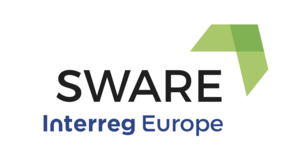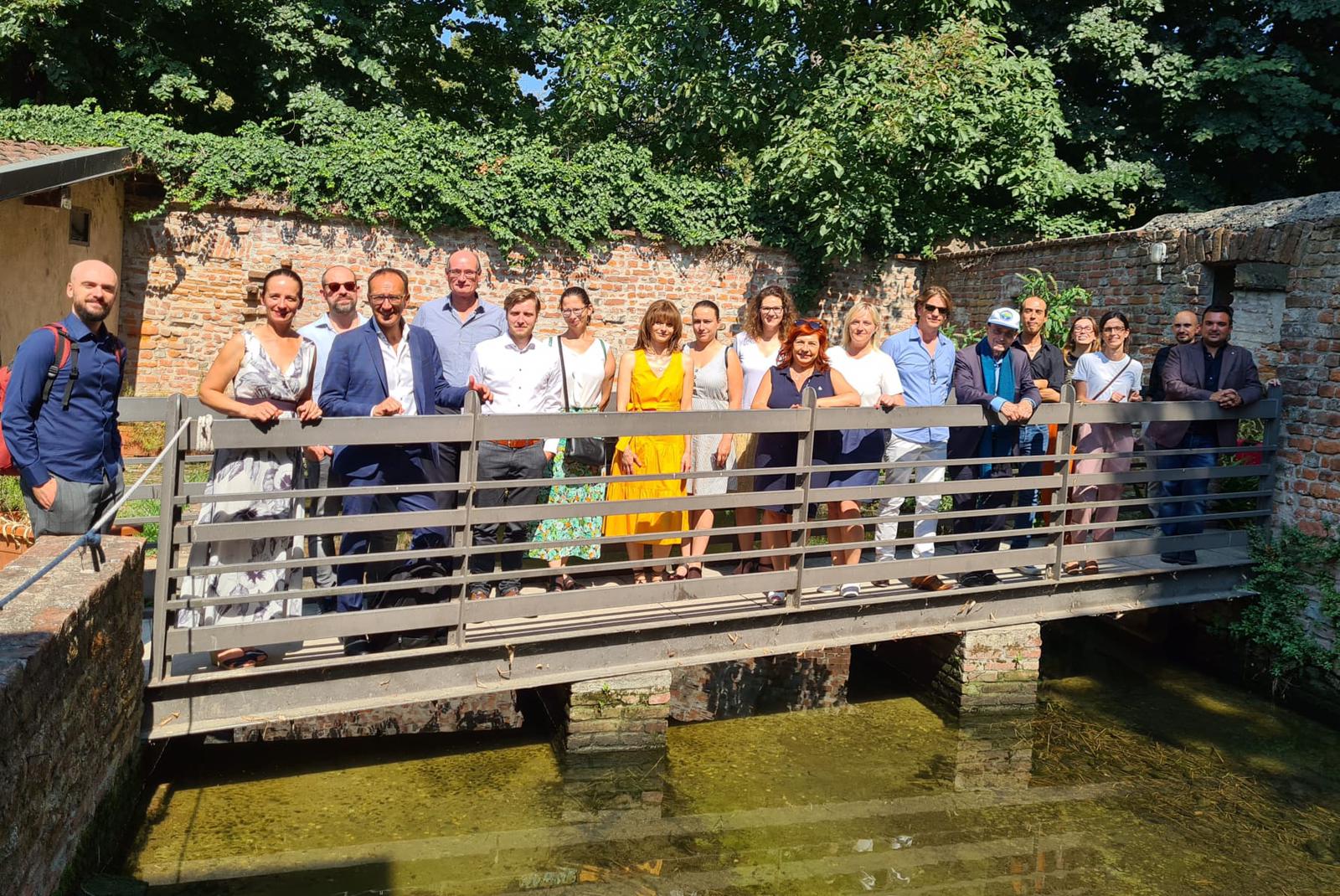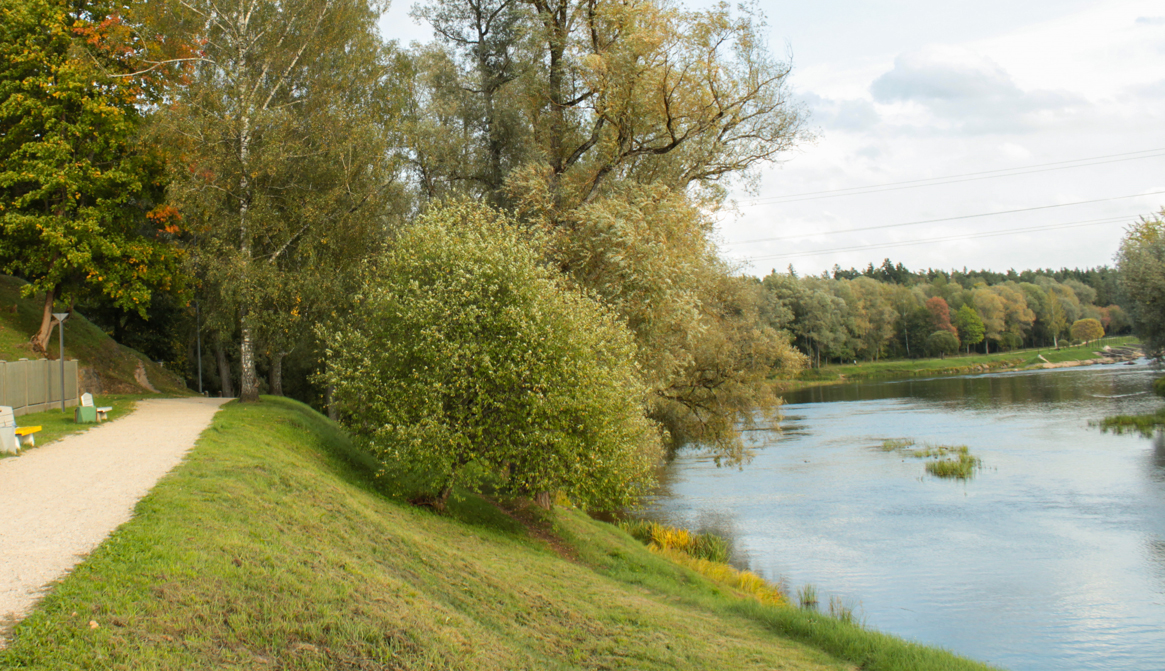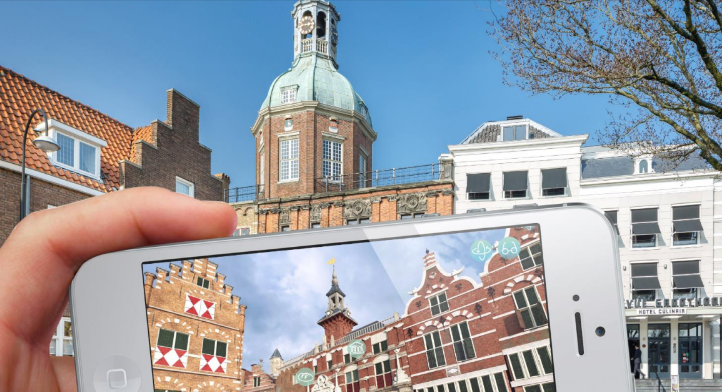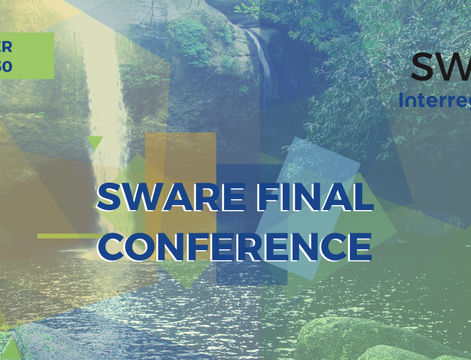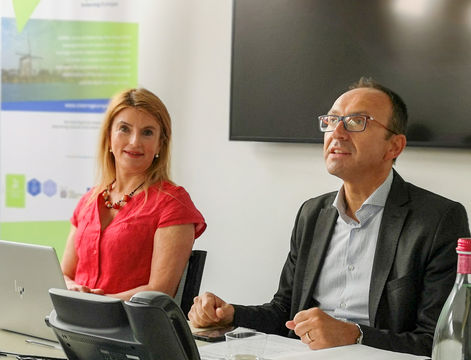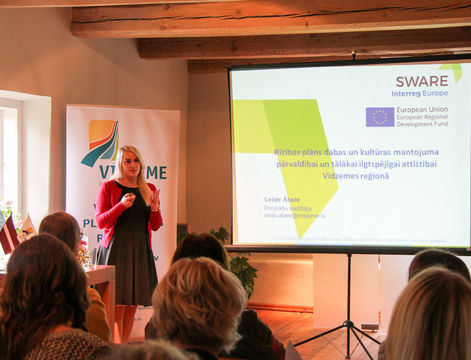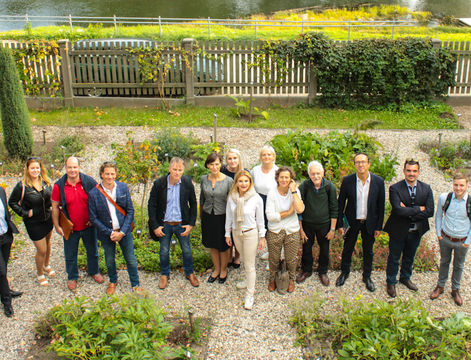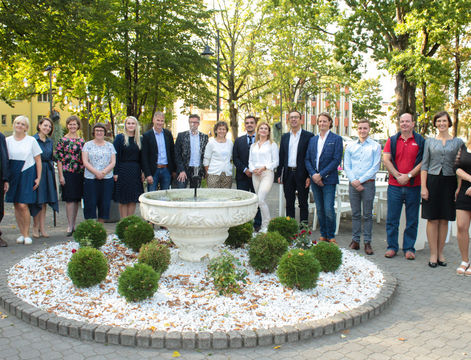“All SWARE partners recognize that the socio-economic future of their regions is fundamentally depending on finding the synergy between preserving the cultural and natural values for the next generations and at the same time “opening their gates” for visitors,” with these words the Kings Commissioner Mr. Jaap Smit opened the 3rd Interregional Knowledge Exchange Session (KES) of SWARE in The Hague (The Netherlands) devoted to marketing issues – destinations, identity and branding.

On October 9–11, 2017, during the 3rd and final KES of the project SWARE, hosted by Province of Zuid-Holland (PZH), the 6 project partners and stakeholder representatives were introduced with how PZH together with stakeholders promotes its water-related natural and cultural heritage, how this leads to economic results and employment and the importance of marketing and public relations involving public-private partnerships.
One of the conclusions so far is that integral projects in the public space require a long-term commitment. Mr. Arnoud Rodenburg, chair of the Lead Partner, Association Regio Water, affirmed: “It is a never-ending task to manage this, and it needs long and midterm vision, endurance and long-term securing, sponsorship and commitment. Therefore, it is necessary that at least one – appointed – administrator is responsible for the co-ordination and the sponsorship of the vison, not bothered by any election at all.”
During the first two days of this KES participants visited several sites, including RDM Rotterdam that is home to a range of exciting private-sector, education and research initiatives, symbolic Kinderdijk Mills park that is a UNESCO World Heritage Site and National Park NL Delta Biesbosch, to name a few.
The first half of the second day was more dedicated to interaction and knowledge deepening on marketing and identity – it started with an interesting lecture on destination branding by Paulus Emden Huitema (The Netherlands) and continued with 4 parallel workshops where such issues as development of touristic destinations, river as a tidal park, cooperation on cultural heritage and financing blue-green investments were tackled. Further on, a site visit to the Rotte area was organized.
On the third day the very inspiring lecture on big (open) data for tourism strategic planning by Andris Klepers (Latvia) raised discussions among the delegates. The discussion was further developed during two parallel workshops on the importance of data and ICT tools for policy makers and the customer-oriented use of big data.


After the KES, the Project Manager of SWARE in the Province of Zuid-Holland, Bas Leurs, admitted: “The most important conclusion from the KES was the perspective the partners from Europe brought in on the destinations in Zuid-Holland and their storylines. The discussions between the international partners and our regional stakeholders helps sharpening the way our beautiful cultural and natural heritage can be branded. Above that, the conclusions from the KES as presented by the European partners give support to working from a shared vision as a basis for shared action plans with our own stakeholders."
The 1st of the two phases of the project SWARE, that was devoted to interregional learning, is at a very advanced stage with only some concluding tasks to be done to prepare for the next phase – elaboration of Regional Action Plans. The stakeholder network has grown considerably since the beginning of the project and a lot of knowledge has been shared among the partners that will serve as input for the 2nd phase. As the Managing Director of the SWARE project, Manita Koop (Association Regio Water), pointed out in her concluding speech of this 3rd KES: “At the beginning we were a small group, but now 200-300 stakeholders are involved internationally within this project. It is very important that the awareness of the importancy of this project is growing, and it is raising on the policy agenda of decision makers. That is a very good achievement of this project just in one year.”

The SWARE project is implemented with the support of the European Regional Development (ERDF) Fund and the INTERREG Europe Programme 2014–2020. This publication reflects the author’s views only and the INTERREG Europe programme authorities are not liable for any use that may be made of the information contained therein.
